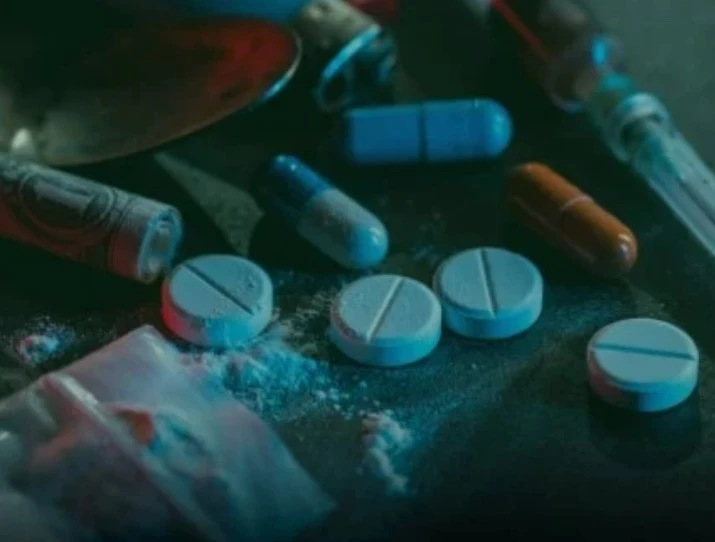UP Manila Develops Portable E-Tox Devices for Drug Detection in Emergency Cases
By: Tiffany Geluz
|
Published on: August 9, 2024

Discover how these groundbreaking E-Tox devices by UP Manila are set to transform emergency care across the country. Learn more about this innovative leap in drug detection and its potential impact on saving lives., Photo from UP Manila report.
University of the Philippines Manila (UP Manila) experts have developed the E-Tox Point-of-Care Testing (POCT) portable devices to detect substances such as designer drugs and poisoning from pharmaceutical drugs, in a bid to elevate emergency care in the country. The new devices address the demand for portable, user-friendly, and cost-effective testing devices during drug-related emergencies.
The E-Tox NPS can detect New Psychoactive Substances (NPS), commonly known as “designer drugs” like ketamine, synthetic cannabinoids, synthetic cathinone, and seven other new substances, from urine samples.
Another portable device, the E-Tox PHX, can detect non-accidental poisoning from pharmaceutical drugs such as paracetamol, isoniazid, and salicylate.
ICYMI UP scientists-developed COVID-19 Test Kit now FDA-approved for local use
Lead scientist and inventor Dr. Ailyn Yabes of the Department of Pharmacology and Toxicology at the UP Manila College of Medicine shared in her presentation of the new devices that the E-Tox would be useful in saving lives during acute management in poisoning cases related to drugs.
Dr. Yabes cited the case of a critical patient who could have benefitted from E-Tox: “In this case, the delayed diagnosis and management of a 22-year-old female patient who had taken a paracetamol overdose could have been avoided if a point-of-care testing device was available at the emergency room.” The UP Manila professor emphasized the value of timely management in poisoning cases.
The devices can also serve as the POCT screening kits for NPS which are not covered by available testing devices in the Philippines.
Yabes added that existing testing platforms for pharmaceuticals and NPS are inaccessible and impractical for emergencies as they are often lab-based, costly, and require hazardous chemicals.
Both E-Tox devices were considered acceptable and valid as demonstrated by performance characteristics of limit of detection, accuracy, precision, sensitivity, specificity, and predictive values according to UNODC, CLSI, and ISO 5725-1:2023 standards, affirmed Cesar Perez Jr, director of the UP Manila Information, Publication, and Public Affairs Office.
SEE: UP-DOST innovation RxBox eyed for commercial release after COVID, rural success
The UP Manila National Institutes of Health (NIH) revealed the new devices in a report published on July 12, 2024, where Dr. Yabes clarified that the new devices are only for initial testing to detect presence of drugs during emergencies and should be used in conjunction with other specific and sensitive methods of testing to validate the presence of drugs in urine.
Yabes noted that accidental and deliberate paracetamol poisoning is a public health concern in the country and region. Data from the UP Philippine General Hospital National Poison Management and Control Center (UP PGH NPMCC) shows that pharmaceutical agents account for 35.5% of in-patient referrals while estimates from the World Drug Report estimated pharmaceutical poisoning accounting for an estimated 190,000 annual fatalities worldwide.
DISCOVER: UST, UP Manila science students develop brain-computer, cancer treatment to aid patients
NPS or “designer drugs” are “substances of abuse, either in a pure form or a preparation, that are not controlled by the 1961 Single Convention on Narcotic Drugs or the 1971 Convention on Psychotropic Substances, which may pose a public health threat,” as defined by the United Nations Office on Drugs and Crime (UNODC).
The UNODC describes available NPS in the market as having similar effects to substances under international control such as cannabis, cocaine, heroin, LSD, ecstasy, and methamphetamine.
The E-Tox POCT portable devices were developed by a team led by Dr. Yabes as the Principal Investigator, Prof. Noel Quiming as Co-Investigator from the Department of Physical Sciences and Mathematics, Asst. Prof. Sarah Johnson as Co-Investigator from the Department of Physical Sciences and Mathematics, University Researchers Gabrielle Pagjunasan and Greg Andrew Octa, and University Research Associate Jessa Turreda as Project Staff.
Funding agencies such as the Dangerous Drugs Board, the Department of Science and Technology – Philippine Council for Health Research and Development (DOST-PCHRD), and the UP-PGH 1st Director’s Innovation Grant support the development of the Filipino invention.
E-Tox-NPS clinical validation is expected by October 2024, while E-Tox-PHX is still in progress and partially funded.
Dr. Yabes said she looks forward to having the healthcare market adopt the E-Tox POCT devices for early diagnosis and management of poisoned patients. “We are now looking for industry partners to collaborate with us in the pre-commercial stage and subsequently in manufacturing and commercialization.”
SHARE this article to help spread public awareness about Filipino innovations in emergency healthcare.
Be part of our vibrant Good News Pilipinas community, celebrating the best of the Philippines and our global Filipino heroes. As winners of the Gold Anvil Award and the Lasallian Scholarum Award, we invite you to engage with us and share your inspiring stories. For stories Making Every Filipino Proud, reach out to GoodNewsPilipinas.com via Facebook, Twitter, Instagram, TikTok, YouTube, and LinkedIn. LinkTree here. Let’s spread good news together!